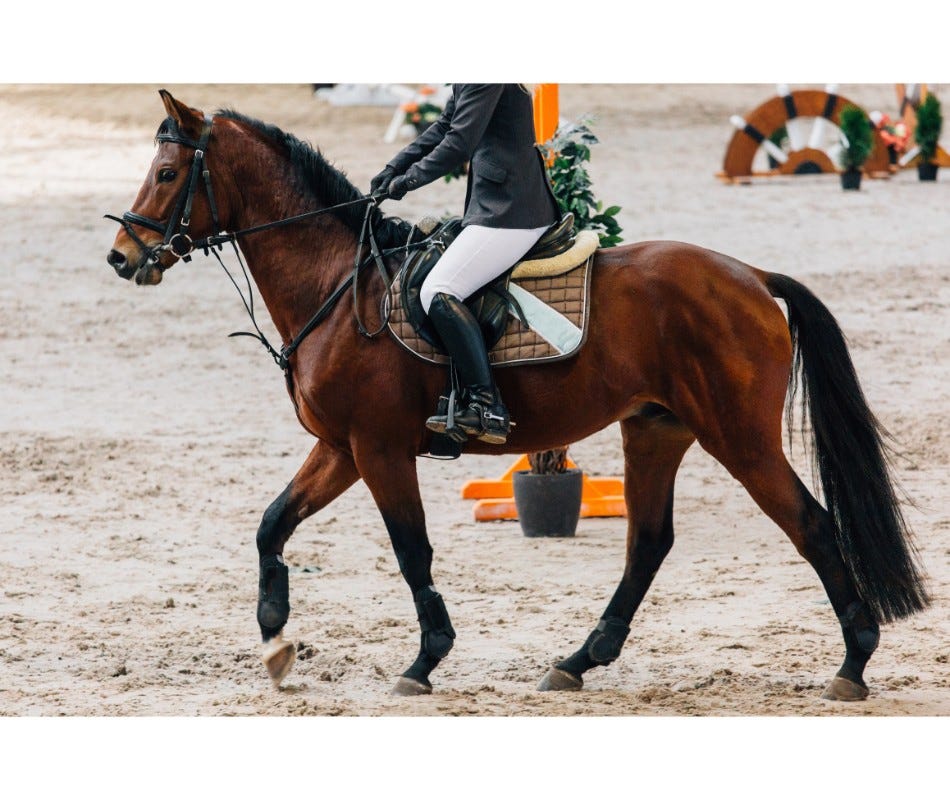We use cookies to make your experience better. To comply with the new e-Privacy directive, we need to ask for your consent to set the cookies. Learn more
Horse Care Tips: Caring for the Old Timer
Horses make great companion animals and they can live long active lives – even reaching the age of 20 to 30. However to get your horse to reach old age it takes the utmost care which includes veterinary checks, proper maintenance and of course good nutrition. If you provide this care your horse will live a productive and longer life.
It is natural as your horse matures further, change is inevitable and you need to double your efforts in providing care if you want your horse to live healthy for as long as possible.
Like humans you can't delay or change the aging process and as we all no it is not fun to get older. With aging comes diminished strength and the body may not be able to handle diseases or stress as efficiently as when younger. The activities that your horse is to enjoy may not be as fun and pleasurable anymore and injuries are more likely to happen and may be difficult to prevent. These are typical common signs that your horse is aging. You need to keep in mind that each horse shows different signs of aging, and other horses may show evident signs more compared to others. Nevertheless, even if your horse may not show weakness upon aging, the process continues on and it would be better if you detect the effects of aging and do something to respond promptly.
Regular Checks by the Veterinarian
When you have a senior horse, it is important for them to have a yearly check up by the the vet, which also includes dental examination. The adult horse teeth continue to grow out from the gums slowly as the horse ages and normally remain for as long as they live. However, some senior horses may not be fortunate enough to have a complete set of teeth anchored to their gums, making feeding difficult. In this case, it would be better to have the tooth removed to allow your horse to be comfortable.
Aging also brings along health problems, just like in humans. As your horse enters its senior years, health problems will start to develop. You need to consult the vet to see if your horse needs to have more frequent checks than usual. The most common health problem in senior horses is arthritis; horses that reach their 20’s will at least experience some type of arthritis and the problem likely worsens if the horse is carrying extra weight. Heavy weight takes its toll on the knees and this is one reason why you need to take your horse out for regular exercise regularly and have the vet assess the chances of any exacerbation of the condition.

The Senior Horse Can Only Do So Much
Just because a horse has reached it's senior years you should not look at this as being debilitation. They can still perform a sufficient amount of exercise and work. However their performance level will be reduced as aging affects all organs which may not function as efficiently as a younger horse. This is something you need to be mindful and observe your horse when exercising
Is Deworming Necessary?
When considering the idea of deworming senior horses, think first if worming is truly necessary for your horse or its condition – how severe or tolerable is the parasitism? You will also need to consider the type of parasite plaguing your horse. Before you have your horse dewormed, get a fecal egg count exam first, so you can decide which equine dewormer will be most appropriate to use and with opinion from the vet, of course.
Good Feed Brings Good Life
Even in aging, your horse should still receive the joys of its feed. Nutrition is a vital part during the process of aging. The diet of the horse should contain the appropriate amounts of components to sustain the horse's well being. In feeding senior horses, though, the teeth should be considered. A horse with compromised dentition may result to food not being chewed well or swallowed, resulting to weight loss. Some older horses just can't tolerate any type of feed, even if they were used to eating all food types as a younger horse. Definitely take in to consideration any health issues and teeth structure in relation to the senior horse's diet.
The Need for Vaccination
As mentioned, a horse’s response to an infection or an illness may not be the same in its younger years. But the bright side is, your horse is less likely to contract diseases from traveling or trailing. However, if you have a new horse in your barn, he could be a source of an infectious illness. Therefore it is best to keep the younger horse away from the senior as much as possible. On the side of vaccinations, your horse may still benefit from the common vaccines that your veterinarian recommends but they do not respond as quickly or for as long as compared to the younger ones. It is still recommended that older horse be given routine and updated vaccinations and even boosters as a prevention of diseases such as West Nile Virus, Eastern equine encephalitis (EEE), etc.
Let Your Horse Live a Longer and Fuller Life
A healthy horse will not always mean that it gets to live forever. No one can. However, as horse owners, the best thing you can do is to give your horse a comfortable life as it approaches it's senior years. The well being of your horse will allow the chance to lead a fuller and more productive life.








Validate your login